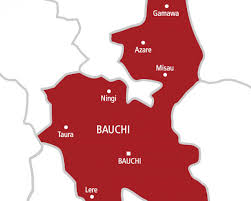The World Health Organisation (WHO) Regional Director, Dr. Matshidiso Moeti, has said tobacco epidemic is one of the biggest public health challenges the world has ever faced.
He said it kills more than 8 million people around the world every year.
She made this disclosure in her message to commemorate World No Tobacco Day with the theme: ‘Grow Food, Not Tobacco’.
“This theme aims to raise awareness about alternative crop production and marketing opportunities for tobacco farmers to encourage them to grow sustainable, nutritious crops and also seek to expose the tobacco industry’s efforts to interfere with attempts to substitute tobacco growing with sustainable crops, thereby worsening the global food crisis.
“It calls on all of us to explore how food and agricultural policies make adequate nutritious food and healthy diets available while reducing tobacco production,” she said.
WHO stated that the number of tobacco users in the African region increased from an estimated 64 million adult in 2000 to 73 million in 2018.
Dr Moeti said the number of people using tobacco products is decreasing in other parts of the world as it is rising in the Africa.
“This is partly due to the increased production of tobacco products as well as aggressive marketing by the tobacco industry.
“It provides us the opportunity to highlight the dangers associated with tobacco use and exposure to tobacco smoke. It is also an occasion to renew our advocacy for effective policies to halt the tobacco epidemic and its impact on individuals, societies, and nations.
“Tobacco growing and production exacerbates nutrition and food insecurity. Tobacco farming destroys the ecosystems, depletes soils of fertility, contaminates water bodies and pollutes the environment. Any profits to be gained from tobacco as a cash crop may not offset the damage done to sustainable food production in low- and middle-income countries.
“Nearly 828 million people are facing hunger globally. Of these, 278 million (20%) are in Africa. In addition, 57.9% of people in Africa suffer from moderate to severe food insecurity. This jeopardises the region’s attainment of SDG 2 which aims to end hunger, achieve food security and improved nutrition, and promote sustainable agriculture.
“The intensification of the major drivers behind recent food insecurity and malnutrition trends, such as conflict, climate extremes, and economic shocks, further compounds this situation,” she said.




